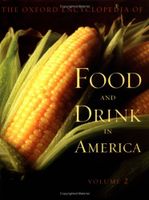Advertisement
Gender Roles
Appears in
Published 2004
In early hunter-gatherer societies, the limitations and responsibilities imposed by child care kept women nearer to the home fires, at least for certain periods of time, and made them the more logical choice to be cooks. Even then the lines were not strictly drawn because women without dependent children participated in community hunts and trapped smaller animals. Later agricultural and pastoral societies maintained gender divisions in which men managed herds and women were the agriculturists. Such early dichotomies have survived in the ancient mythological tales about the Greek goddess Demeter (the Roman Ceres, source of the word “cereal”), who nurtured the crops and wild plants, or Pan, a lesser god who tended the herds. The responsibilities for cookery were similarly divided: the food that women prepared nurtured the family while the food that men prepared strengthened the public polity and community prosperity. Women prepared porridges, stews, and soups of staple grains, breads, vegetables from their own gardens, and small game by stewing, boiling, and simmering them in earthenware vessels over small fires (often indoors or just outside the doorway). Men, on the other hand, roasted meats with iron tools over large beds of embers out of doors.


